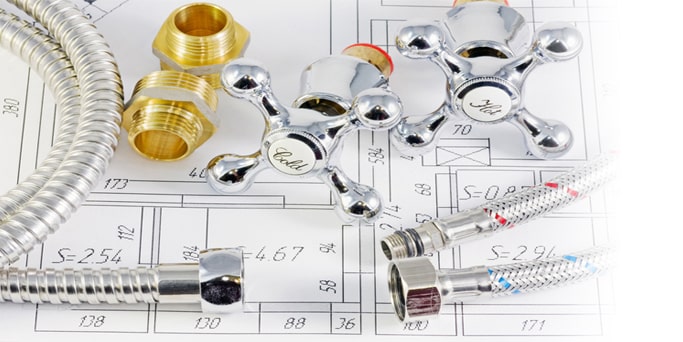When you hire a professional plumber in Philly, you expect them to know what they’re doing. That means knowing how to do the job properly, but it also means understanding how to work within local building codes.
So if you had a Philadelphia residential plumbing contractor install new plumbing in your home, or a commercial plumber do the same for your business, you might be surprised to learn you’ve violated the plumbing code.
It’s not your fault! But it’s still your problem.
Here At Mount Airy Plumbing, we can help.
Our experienced and licensed plumbers have a deep understanding of the uniform plumbing code, and we’ll put that knowledge to work for you.
Find out more about how plumbing code violations work, and what you can do about it.
What Is A Plumbing Code Violation?
Across the United States, various states and municipalities have different plumbing codes. In order to make things uniform and easy to understand, most states have adopted either the International Plumbing Code or the Uniform Plumbing Code.
Here in Pennsylvania, we use the Uniform Plumbing Code, or UPC.
The UPC is a long and detailed document that outlines how to install, maintain, and repair a wide variety of different plumbing systems. This includes:
- Hot water heaters
- Sinks, faucets, and other plumbing fixtures
- Storm drain installation
- Rainwater harvesting systems
- Sewer line installations
- Water supply and distribution systems
- And much more
The UPC is regularly updated and has a focus on ensuring plumbing systems are both sanitary and safe. This is a good thing – the foremost experts in plumbing engineering have gotten together to create these regulations in the interests of consumer good.
A violation of the UPC happens when your plumbing installation is found to be out of compliance with UPC guides.
What Are The Most Common Plumbing Code Violations?
With such a long and detailed document, it would be very difficult for us to list off every single possible violation. If you do happen to be interested in reading the full UPC guidelines, we linked to it above.
However, some of the more common violations include:
Improper Materials
Depending on the situation, using certain types of materials in your plumbing installation will violate code. Corrugated piping and rubber fittings, for example, are not always permitted.
S Trap Installation
A P-trap is a P shaped piece of piping attached to the bottom of your drains that stops sewer gases from coming through your pipes. S traps are old and usually violate UPC code.
Crowded Toilet
You need to have a certain amount of space around a toilet in order to be able to use it properly. If it’s too cramped or difficult to access, you may find yourself in violation of UPC codes.
Inaccessible Cleanouts
Cleanouts are points you can use to access your plumbing and unclog your drains. UPC code outlines the number and type of easily accessible cleanouts with any plumbing system.
Broken Water Shut Off
Water shut off valves are incredibly important, because in case of a plumbing emergency, they stop it from getting any worse. If your shut off valves are broken, that’s a violation.
Drainage Sloping
Drainage pipes need to be installed with a certain amount of slope. This keeps water flowing and prevents clogs. But too much slope isn’t good either. ½ inch per foot is a good benchmark.
How Do You Discover A Plumbing Code Violation?
In many cases, you might not even notice if you have a plumbing code violation. This is especially true if you have a violation in your home.
However, If you decide to sell your home, any potential buyer is likely to insist on a home inspection, end plumbing code violations often pop up during these.
As well, if you run a commercial building, and somebody is injured and it’s discovered that a plumbing code violation was the cause, you may be liable for a lawsuit.
However, there is another way.
Instead of leaving it up to chance, why not contact a reputable Philadelphia plumbing company to perform a plumbing inspection?
Here At Mount Airy Plumbing, we can help you by inspecting your plumbing installation to make sure everything is up to code.
The last thing you need is a lawsuit on your hands and somebody’s injury on your conscience. Let us help.
